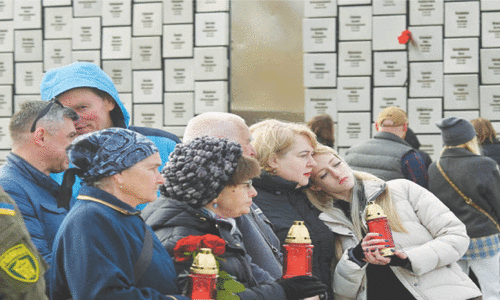What possible thing could I write on the titanic rivalry that exists between Spanish and European football’s heavyweights that you don’t already know?
You probably already know much of the history that has been tainted by Spain’s uniquely fractured regional identities. How the two clubs’ histories are inextricably linked to the scars of Spain’s bloody civil war. How Camp Nou was used as a bastion for free speech and resistance during the fascist dictatorship of Francisco Franco. How the general exerted his influence to ensure that his beloved Madrid more often than not prevailed over their Catalan rivals, whose culture he inherently despised. There have been books written about this. There’s nothing new here.
Nor would there be in an analysis of the symbolism of the defining ‘who’s the greatest?’ conundrum of this footballing generation. What more is there to say about Cristiano Ronaldo and Lionel Messi other than that they seemingly personify the ideologies of their clubs. There Ronaldo stands in resplendent white, the iconoclastic standard bearer in a team of individuals. His rival Messi, a PlayStation cog in a team defined by the very essence of being more than just a sum of its parts and (as the motto has it) a club.
Life, like football, sometimes gets too complicated when it needn’t be. Keep calm, choose sides and watch the game
Instead, I’m going to tell you a story about my friend Jennifer, a Spanish Canadian who went to Syria in 2010 to learn Arabic. It’s through her experiences that we can gain an insight into why these two teams matter so much and why the local frictions that defined these giants are simultaneously being eroded and reflected as football’s influence continues to transcend borders.
“… lakinBarshelonawakurat al-qadam… nefsa shay!” — “But Barcelona and football … it’s the same thing!”
 |
| Nationalists unfurl a banner |
That, more often than not, was the general refrain she heard when conversing with the denizens of Damascus during her stay in the Syrian capital. Thanks to her father, Jennifer holds a Spanish passport. This fact is important because by all accounts, the Syrian state at the time was a real fan of bureaucratic procedure. It resulted in her American boyfriend routinely being viewed through suspicious eyes but with every mundane flashing of her passport, those same eyes would soften and the question would be asked without hesitation. Barcelona or Madrid? A wrong answer would conclude with either a sneer or dismissal but a right answer would bring out a smile and a twinkle of the eye. Jennifer supports Barcelona. Draw your own conclusions.
Everywhere she went she’d be asked the question. She’s told me of the irritation of the neighbourhood baker when the inevitable question arose. As she puts it: “He was a proud Real Madrid aficionado and Cristiano Ronaldo was his god”. His vexation at his favourite chocolate croissant customer’s apparent heresy was such that he marched into the depths of the bakery’s ovens and grabbed his young apprentice, innocently ensconced as he was in his dough-kneading, by the ear, frog-marched him to the counter and said with some exasperation, “She is Barcelona … like you”. The two faux Catalans exchanged bashful but knowing smiles.
Over and over, the question would be unveiled. By immigration officials, as she applied for numerous residency permits. By a group of young men at the ruins of Palmyra as they travelled from Aleppo with a Barca flag attached to their car and flapping in the wind and later wrapped round the hump of an unimpressed camel. A young man in the Sony store revealed his lifelong ambition to save up and run the gauntlet of the labyrinthine bureaucracy just so that he could stand in the Camp Nou to watch his heroes play.
Jennifer has dozens of these little vignettes. She now resides in Brooklyn. As Syria’s tinderbox of tensions finally caught alight, she was forced to leave the country. What has happened to all those people left behind is something she thinks about regularly. Is the aroma of freshly baked Madridista bread still wafting across the houses in the early morning breeze? Are those boys from the ruins still hanging their Barca flags in strange and wonderful places? I think we all know the answer to that and it’s all so very sad.
What Jennifer learned in her time in Damascus (and consequently taught me) was that these weren’t people brought up on the tapestry of blood and recrimination of Spain’s football. They were people who just loved football for what it is and they craved it. Shorn of the local histories, the ‘he dids’ and the ‘they saids’, their support was cemented by what they saw played out on the pitch. It is testament to the two clubs’ global appeal that such dialogues can take place between people of wide-ranging language and cultural upbringing. Because in the end, all the peripheral details in football are irrelevant. Everybody understands a Neymar flick or a Bale dribble.
The other reality, however, is that everybody also understands the barrel of a gun. Life, like football, sometimes gets too complicated when it needn’t be. Just keep asking yourselves the question, Barcelona or Madrid? It may seem like such a trivial thing but the alternatives seem much, much worse.
Connect with Greg Theoharis on Twitter @sofalife. You can also read his blog, Dispatches From A Football Sofa, at http://DispatchesFromAFootballSofa.com
Published in Dawn, Sunday Magazine, July 27th, 2014
















































